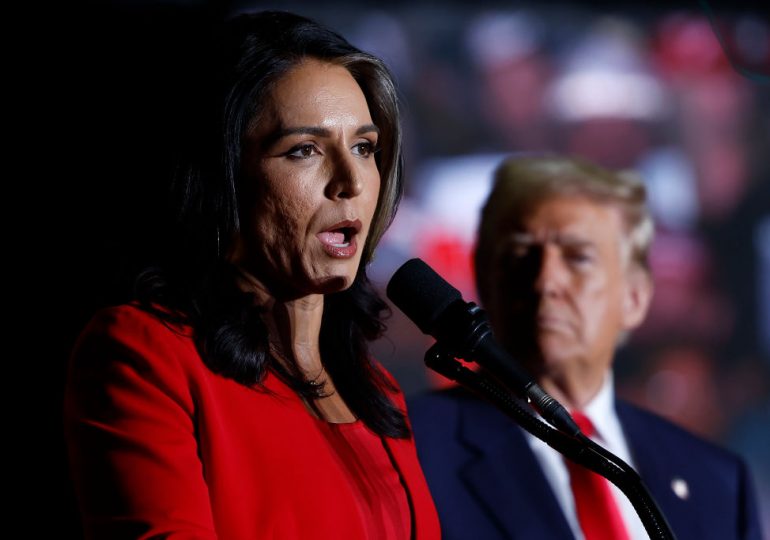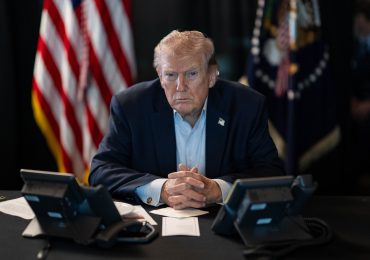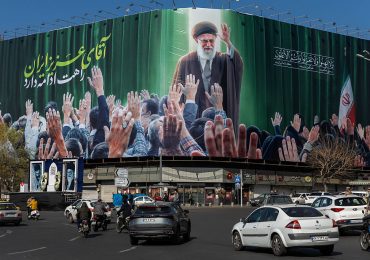Tulsi Gabbard, a onetime Democratic presidential candidate turned independent, announced at a Donald Trump rally in North Carolina on Tuesday that she’s officially joining the Republican Party.
[time-brightcove not-tgx=”true”]
“I’m joining the party of the people, the party of equality, the party that was founded to fight against and end slavery in this country. It is the party of common sense, and the party that is led by a President who has the courage and strength to fight for peace,” Gabbard said. “You know, I was a Democrat for over 20 years. Today’s Democrat Party is completely unrecognizable,” she continued. “When you look at the party of Kamala Harris, for example, she is anti-freedom. She is pro-censorship, she is pro-open borders, and she is pro-war without even pretending to care about peace.”
Gabbard, 43, becoming a Republican should come as no shock to anyone who has followed her career, particularly in recent years, as the former lawmaker from Hawaii has long made a name for herself by openly criticizing Democrats and has become a staunch supporter of former President Trump.
Her announcement of her party switch comes after prominent Republicans, such as former Vice President Dick Cheney and his daughter former House Republican Conference Chair Liz Cheney, have endorsed Harris in the 2024 election. Gabbard cited the Cheneys’ support of Harris as evidence that the Democratic Party is one of “warmongers.”
Read More: Everything You Need to Know About Voting in the 2024 Election
Gabbard, the daughter of educators and small business owners who were involved in local politics, began her political career in 2002, when she became the youngest person ever elected to the Hawaii state legislature, representing District 42 in West Oahu as a Democrat. She left politics in 2004 to serve in the Army National Guard before returning after deployments to Iraq and Kuwait to run and win election in 2010 for Honolulu City Council.
When Gabbard threw her hat into the ring in 2011 for the Democratic primary for Hawaii’s second district seat in Congress, she was still a relative unknown and underdog. But after beating five other challengers, including the former mayor of Honolulu—on a campaign largely defined by her vocal opposition to Bush Administration-era foreign wars and her personal reversal on same-sex marriage, which she’d previously opposed but now supported—Gabbard quickly emerged as a “rising star” of the Democratic Party, as former House Speaker Nancy Pelosi called her. Then-President Barack Obama endorsed her congressional bid, and she was invited to speak at the 2012 Democratic National Convention.
After she became the first Hindu, first American Samoan, and—alongside Illinois’ Tammy Duckworth—the first female combat veteran elected to Congress in 2012, Gabbard swiftly rose in the party and was elected a vice chair of the DNC in 2013.
But known for her populist economics and pro-veteran yet anti-interventionist politics, Gabbard certainly did not toe the party line. She often clashed with Democratic leadership for being publicly critical of Obama’s foreign policy, and during the 2016 presidential election, she criticized the DNC’s primary process as biased in favor of former Secretary of State Hillary Clinton. In 2016, she resigned from her DNC vice-chair post to endorse independent Vermont Sen. Bernie Sanders’ campaign, for which she became a prominent supporter and gave the nominating speech at the 2016 Democratic convention.
After Trump went on to win the 2016 general election, Gabbard said she had a “frank and positive” meeting with the President-elect and was rumored to be considered for a Cabinet position.
In 2019, Gabbard launched a presidential campaign and announced that she wouldn’t seek reelection to Congress. But, particularly after a vote of “present” in Trump’s first impeachment trial, she came to be the “most disliked” candidate in the extensive Democratic field. One of the standout moments of her short-lived campaign came during a primary debate in which she challenged then California Sen. Kamala Harris’ record as a prosecutor. But it wasn’t enough to propel her candidacy, which never polled higher than single digits and was suspended in March 2020, after which she endorsed former Vice President Joe Biden. She was not invited to speak at the 2020 Democratic convention.
After leaving office in 2021, Gabbard became an even more outspoken critic of the Democratic Party, often appearing on Fox News and even serving as a guest host for Tucker Carlson’s show on multiple occasions. She expressed support for Republican candidates and policies and spoke at the 2022 Conservative Political Action Conference (CPAC). In October 2022, she announced that she was officially leaving the Democratic Party, which she decried as “under the complete control of an elitist cabal of warmongers driven by cowardly wokeness.” She went on to endorse a number of GOP candidates in the 2022 midterms, including Trump’s now-running mate Ohio Sen. J.D. Vance.
Earlier this year, Gabbard had been speculated as a potential running mate pick for Trump, and when she was asked about it on Fox News in March, she said, “I’d be honored to serve our country in that way and be in a position to help President Trump.” After Gabbard formally endorsed Trump in August, she was tapped alongside former independent candidate-turned-Trump supporter Robert F. Kennedy Jr. to co-lead Trump’s transition team, which would set the priorities for his incoming administration if he’s elected in November.
When Trump took the stage after Gabbard announced her new GOP membership on Tuesday, he called it a “great honor” and exclaimed, “Wow, that was a surprise.”
Leave a comment








